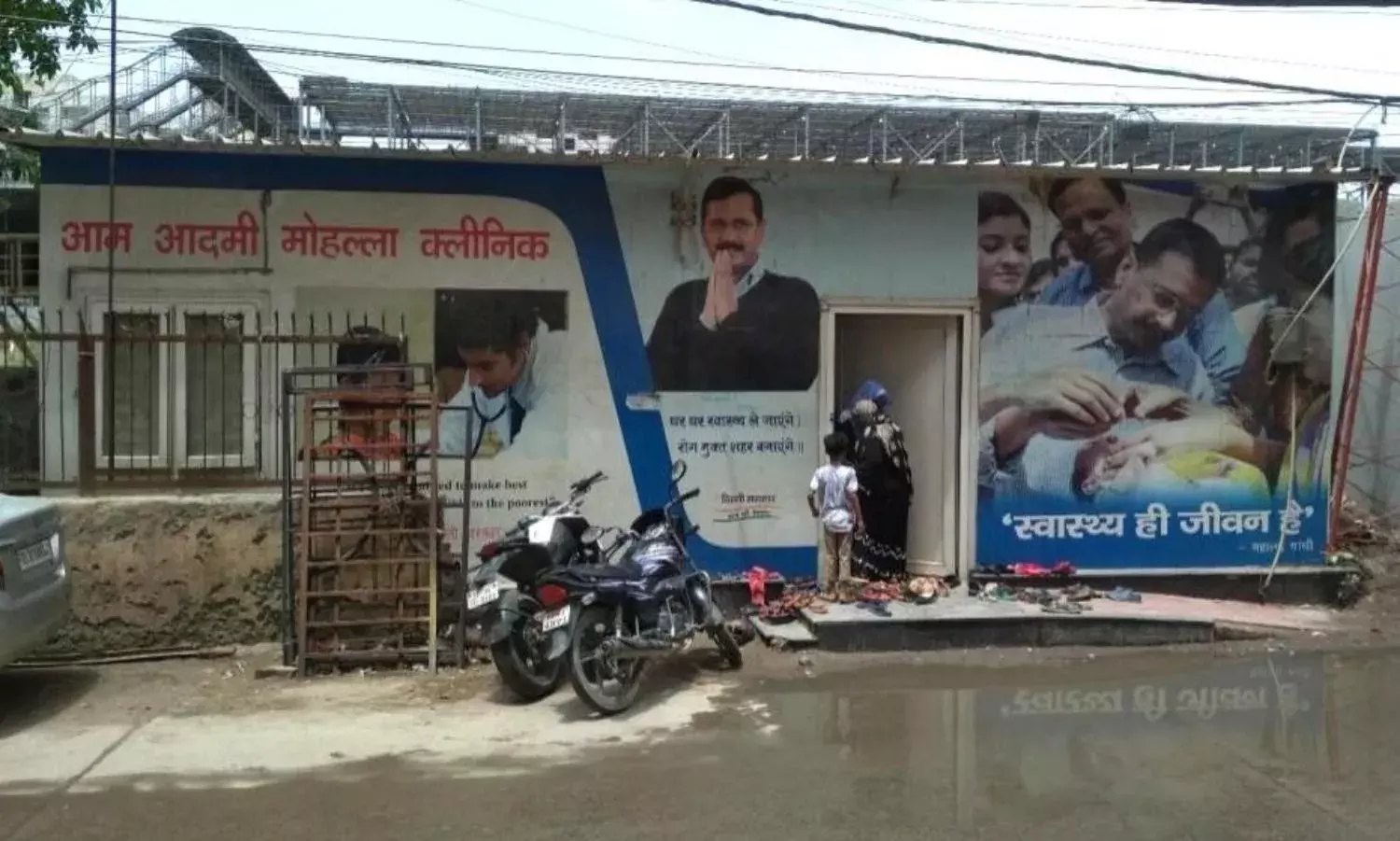Mohalla Clinics a Relief for Patients, But the Staff Have a Different Story to Tell
Is this lauded initiative living up to its promise?

NEW DELHI: The Delhi government’s primary health centres known as mohalla or neighbourhood clinics were started by the Aam Aadmi Party government in 2015. In the four years since, the number of clinics has increased to 190 against a promised 1,000 across the state. The initiative is intended to reduce travel costs and waiting time, and provide basic medical facilities including diagnosis, referral, treatment and medicines for free.
The government has faced problems in acquiring land to establish these clinics, as without full statehood for the National Capital Territory it does not enjoy as much control over land use as other state governments. According to reports the AAP has also complained that various central government institutions have been obstructing the establishment of several mohalla clinics.
The Citizen visited a number of mohalla clinics in the Okhla area. The doctors here were not willing at all to talk to us, citing orders “from the head office” that they were not to talk to the press.
“There were already orders to not talk to media people without permission, but the orders are now stricter after the incident with (journalist) Anjana Om Kashyap when she walked into the ICU (at the SKMCH in Muzaffarpur). You need to get permission from headquarters which they most probably won’t give you, and we don’t want any unnecessary problems,” one doctor told The Citizen.
Nevertheless we managed to talk to a few doctors who told us they didn’t fear saying what is right.
Are these mohalla clinics living up to their promise, and have they succeeded in improving healthcare provision to the poorer sections of Delhi society? We set out to get answers.
Patients wait for consultation at a clinic in Okhla
What do the patients think?
Most patients we spoke with say they have in fact benefited from these PHCs. “We get the necessary medicine and treatment each time we turn up here. My mother regularly visits this clinic and we are satisfied with the treatment we are getting,” said a patient at the Shaheen Bagh Mohalla Clinic.
Long queues of patients waiting for consultation can be seen at most of the mohalla clinics in Okhla. And most of the patients present were regular visitors who seemed to have become familiar with the doctor.
Some people were seen taking consultation on issues like hair fall, which the doctor seemed to enjoy thoroughly. “Patients are actually benefiting from this initiative. Nobody in a government hospital would provide such consultation to them,” a doctor at one of the mohalla clinics told The Citizen.
Earlier, many said, they had either to pay huge amounts to private doctors, or visit government hospitals which were already overcrowded. Mohalla clinics have reportedly reduced the crowd in those government hospitals as well.
Patients are also receiving free tests and checkups whenever necessary. “When tests are required, the doctor gets it done” said one of the patients interviewed. Shadab, a 40-year-old patient said “these mohalla clinics are such a relief to us. Earlier we had to pay lot of money due to which sometimes we would put off going to the doctor.”
Arshiya, a 48-year-old patient had a similar opinion. “Be it a sugar test or thyroid test, I get all such facilities here.”
However, these mohalla clinics are only open up to 1.30 PM, after which you will have to wait till next day – and you will need an Aadhaar card, in apparent contravention of Supreme Court orders.
What do the doctors think?
“We try and provide the best consultation we can, we try to be as friendly as possible, but the same is not reciprocated by the patients,” said one of the doctors we spoke with. He wasn’t the only doctor to express concern about their own and the staff’s safety. “We treat you well and don’t charge anything from you. What you can do is at least behave properly with us… Security is definitely an issue with us.”
Doctors also said that seeing patients here is a more tiring job than at any other clinic. “You cannot send them home empty handed, you have to give them something.”
Another issue pointed out by the doctors was their inadequate salary. “I get paid 40 rupees per patient and the number of patients varies enormously at times. And my junior staff is paid way less.”
However, an assistant at one of the clinics said he has been working there since it was inaugurated, and is quite content with his job. “We get almost a hundred patients every day and most of them return satisfied,” he told The Citizen.
Infrastructure and hygiene
Most of the these mohalla clinics are run inside of temporary portacabins set up by the side of the road. This is due to the non-availability of land as the government says it has struggled to get land allotted for these clinics.
But the area in which these cabins are built are not the most hygienic of places. With heaps of garbage beside them and waterlogging in front, they may pose a danger to those who are already unwell.
While the interiors of the clinics were clean enough, their surroundings were the opposite of clean. This needs taking care of, as it is a threat to patients and people in the locality as well.
Water logged outside a mohalla clinic in Okhla



